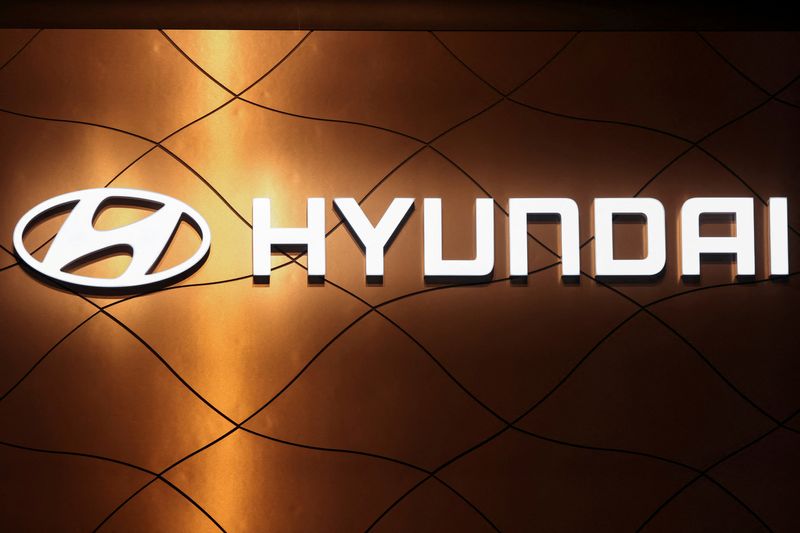Exclusive-Korean auto giant Hyundai investigating child labor in its U.S. supply chain
2022.10.19 16:27
[ad_1]

© Reuters. FILE PHOTO: The logo of Hyundai Motor Company is pictured at the New York International Auto Show, in Manhattan, New York City, U.S., April 13, 2022. REUTERS/Andrew Kelly/File Photo
By Joseph White and Joshua Schneyer
DETROIT (Reuters) – Hyundai Motor Co, Korea’s top automaker, is investigating child labor violations in its U.S. supply chain and plans to “sever ties” with Hyundai suppliers in Alabama found to have relied on underage workers, the company’s global chief operating officer Jose Munoz told Reuters on Thursday.
A Reuters investigative report in July documented children, including a 12-year-old, working at a Hyundai-controlled metal stamping plant in rural Luverne, Alabama, called SMART Alabama, LLC.
Following the Reuters report, Alabama’s state Department of Labor, in coordination with federal agencies, began investigating SMART Alabama. Authorities subsequently launched a child labor probe at another of Hyundai’s regional supplier plants, Korean-operated SL Alabama, finding children as young as age 13.
In an interview before a Reuters event in Detroit on Thursday, Munoz said Hyundai intends to “sever relations” with the two Alabama supplier plants under scrutiny for deploying underage labor “as soon as possible.”
In addition, Munoz told Reuters he had ordered a broader investigation into Hyundai’s entire network of U.S. auto parts suppliers for potential labor law violations and “to ensure compliance.”
Munoz’s comments represent the Korean automotive giant’s most substantive public acknowledgment to date that child labor violations may have occurred in its U.S. supply chain, a network of dozens of mostly Korean-owned auto-parts plants that supply Hyundai’s massive vehicle assembly plant in Montgomery, Alabama.
Hyundai’s $1.8 billion flagship U.S. assembly plant in Montgomery produced nearly half of the 738,000 vehicles the automaker sold in the United States last year, according to company figures.
The executive also pledged that Hyundai would push to stop relying on third party labor suppliers at its southern U.S. operations.
As Reuters reported, migrant children from Guatemala found working at SMART Alabama, LLC and SL Alabama had been hired by recruiting or staffing firms in the region. In a statement to Reuters this week, Hyundai said it had already stopped relying on at least one labor recruiting firm that had been hiring for SMART.
Munoz told Reuters: “Hyundai is pushing to stop using third party labor suppliers, and oversee hiring directly.”
Munoz did not offer further detail into how long Hyundai’s probe of its U.S. supply chain would take, when Hyundai or any partner plants could end their dependence on third party staffing firms for labor, or when Hyundai could end commercial relationships with two existing Alabama suppliers investigated for child labor violations by U.S. authorities.
Munoz’s comments come on the same day that an investor group working with union pension funds sent a letter to Hyundai, pushing it to respond to reports of child labor at U.S. parts suppliers, and warning of potential reputational damage to the Korean automaker.
The letter said that the use of child labor violated international standards Hyundai committed to in its Human Rights Charter and its own code of conduct for suppliers.
SL and Smart Alabama did not immediately respond to requests for comment.
[ad_2]
Source link








